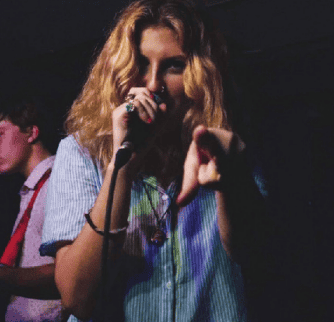Micah Stromsoe DeLorenzo, Special to The Denisonian
“Naked Week” is a popular Denison tradition in which students who choose to participate strip naked or nearly-naked and essentially just run around campus. It’s advertised as a celebration of body positivity and the Denison student body’s way of participating in Eating Disorder Awareness Week. From the moment I heard about this tradition, I thought the entire event was backwards and counterintuitive, and the more I’ve learned about it the more my opinion solidifies.
Now, it’s not that I’m against Naked Week altogether. If it brings people joy, then I support it. But the implication that an event like this would have any positive contribution to eating disorder awareness is frankly upsetting. Eating disorders are so much more than being ashamed of your body and attaching this event to such a serious mental health issue not only trivializes it but borders on dismissing it altogether.
Personally, I’ve never participated in Naked Week, and I don’t necessarily have any interest in doing so. But this hasn’t stopped people from asking me to participate, making jokes about why I don’t want to, and trying to convince me of how fun it is. This creates an environment of pressure, and I know I’m not the only person who’s felt it. For someone in recovery, or actively struggling with an eating disorder, this pressure could have devastating consequences; an already laborious mental health journey becomes that much more difficult.
Say I finally give in and decide to participate. Even if the environment is as uplifting and fun as everyone has told me it’s going to be, how is that going to stop me from comparing my body to all the ones around me? An environment where you’re surrounded by people you perceive as perfectly confident in their bodies, where you can compare even more details than you could before, is not necessarily going to be productive for someone who has struggled with an eating disorder.
This body comparison comes up even if you don’t choose to participate, because it’s a public event. On the first day, naked bodies will be running through A Quad, the most central and populated part of campus. All of those bodies will be opportunities for unhealthy comparison and self-hatred. There will also be examples of people who are more confident, and perhaps even braver than oneself.
And even if there’s no comparison, even if the peer pressure that surrounds this event is disregarded, one major red flag still stands: Naked Week turns body positivity into a performance.
This isn’t an issue of the actual performance itself– it’s an issue of context. Eating disorders are a deeply personal and complicated issue. They’re nuanced, and individualized, and many of them are battles fought alone. Turning your “support” into a performance belittles the genuine devastation that eating disorders bring. People lose their lives to these disorders, and as glad as I am that people feel empowered by running around naked, this has nothing to do with the issue it claims to raise awareness about.
Naked Week in itself isn’t a terrible event. But while there could be some merit in the argument that it celebrates body positivity, pretending it’s a positive contribution to eating disorder awareness does more harm than good.


Tom Cornell
It’s unfortunate that you insist that people must continue suffering instead of at least trying something that has proven to improve the lives of others who have broken through the needless fear of social stigma. You say you don’t understand how running around naked with a bunch of other free spirits would help, yet you refuse to find out why. Don’t die wondering!